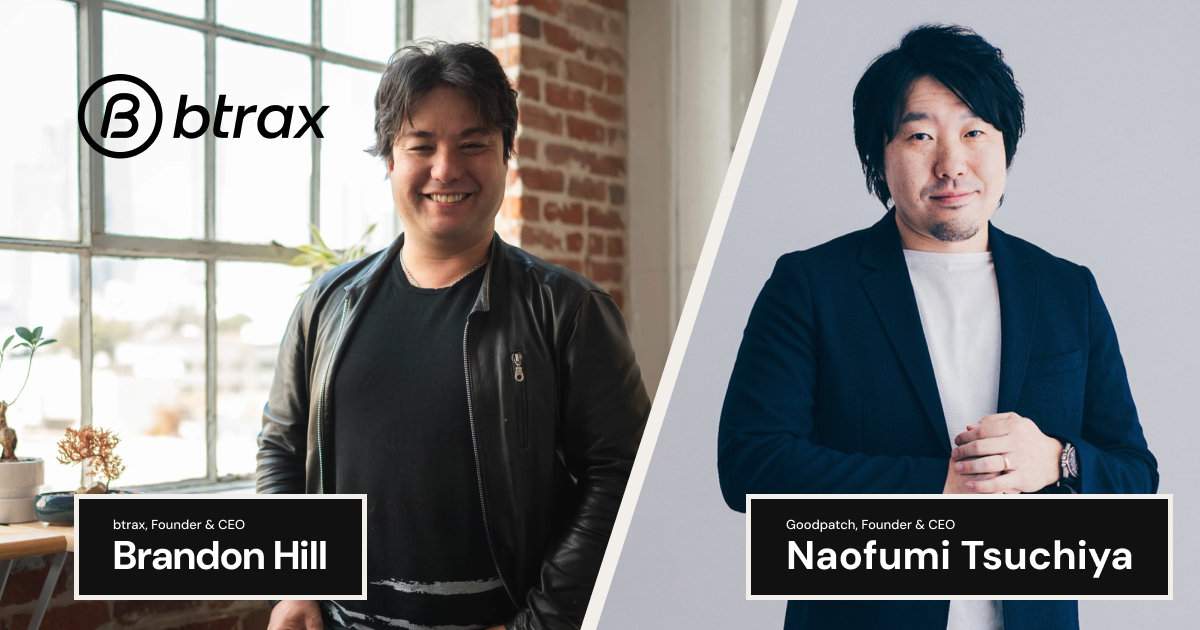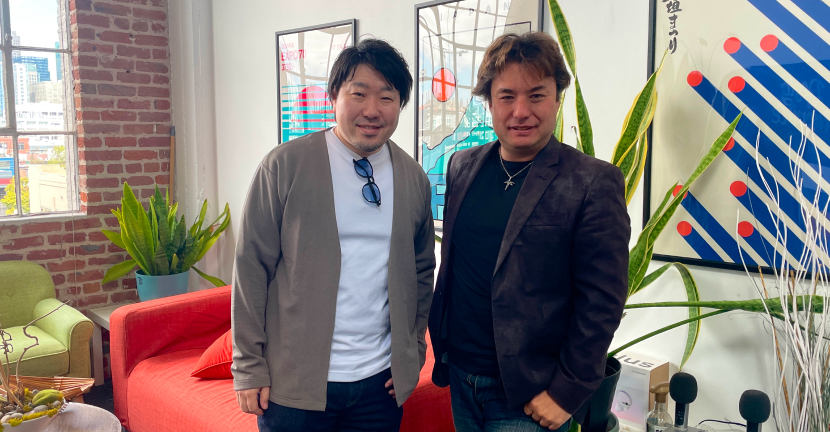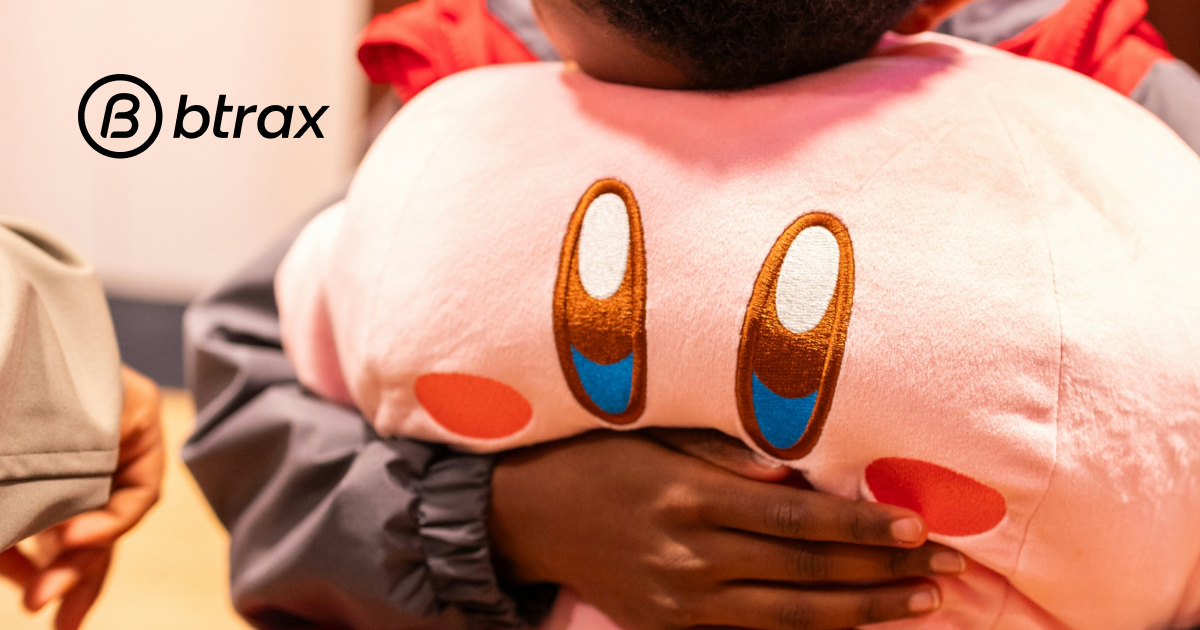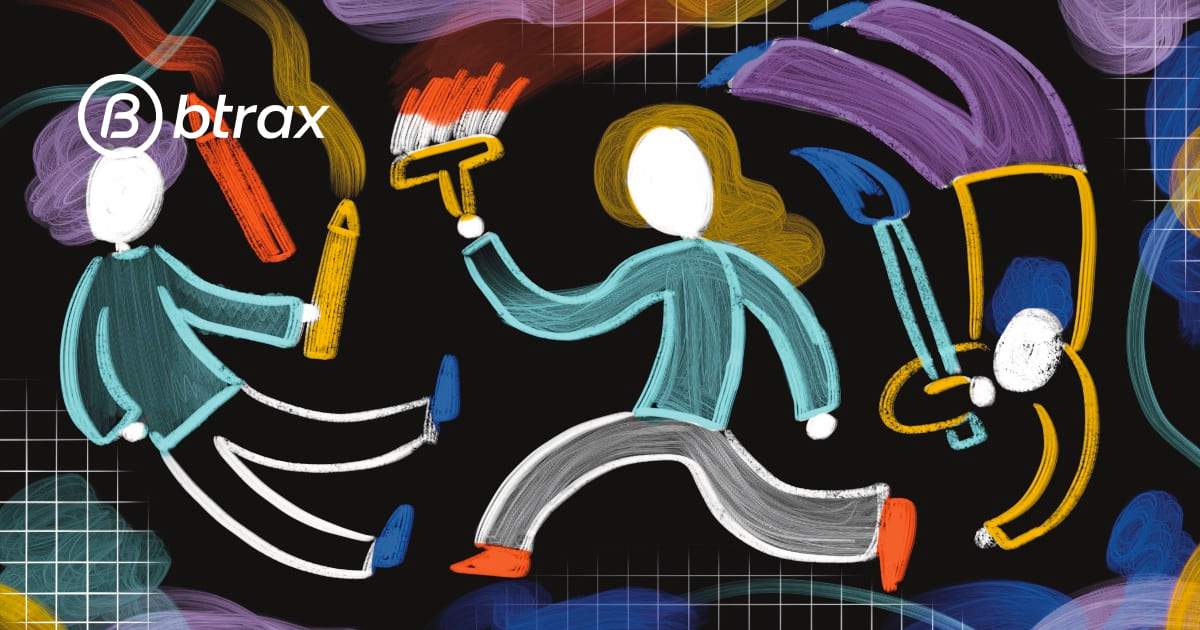
Btrax Design Company > Freshtrax > AI’s Impa...
AI’s Impact on Design: Insights from Goodpatch CEO Naofumi Tsuchiya
Recently, Naofumi Tsuchiya, the founder and CEO of Goodpatch visited btrax’s San Francisco headquarters. There, he met with btrax founder and CEO, Brandon Hill for a lively discussion.
The discussion was recorded for an episode of our Japanese podcast “San Francisco Design Talk“. In this episode, they touched upon various topics including recent changes in the design industry and design thinking, Mr. Tsuchiya’s past as an intern at btrax, and more. This article focuses on the highlights from the part of the discussion relating to the impact of AI on the design industry.

Mr. Tsuchiya:
It’s been just a little over a year and a half since ChatGPT started gaining momentum, and discussions on how it will affect design jobs have often been brought up. However, the disruptive impact has yet to be felt.
One area where the impact of AI technology is noticeable is in what we call “crowdsourcing businesses.”
According to some institutional investors I know, sales in some categories of major crowdsourcing services, such as illustration, have significantly declined.
Brandon:
The ones seeing the impact are essentially outsourcing and handling the basic tasks of production.
Mr. Tsuchiya:
Exactly. It seems that sales of major crowdsourcing services, such as illustration, have significantly decreased.
Brandon:
So, we might assume that instead of outsourcing, they may be using AI to create them.
Mr. Tsuchiya:
Yes. So, there is a real impact there, or so I’ve heard.
I think that design companies like us (Goodpatch) and btrax, which are more focused on upstream processes such as planning and strategy, haven’t had their work taken over by AI at the moment.
In Japan, over the past six months or so, there have been people reporting their case studies on social media to have AI learn user preferences, use AI to conduct user interviews and complete the UX design process solely with AI. I don’t think the results will be as valuable as we would want.
For those who run a business or are just starting, user pain is often the driving force. To be successful, you need to act as though the user’s pain is your pain. So, the original experience of an entrepreneur should be touching on and seeking to resolve user pain in one way or another.
User interviews and research are extremely important. When using AI to understand a user’s pain, you lose the personal touch and humanity of the problem that you’re trying to solve.
Brandon:
I understand. AI is highly objective and logical, but it doesn’t resonate deeply with us, human beings.
Mr. Tsuchiya:
When you are doing business, imagining the faces of specific people in trouble or knowing that there are people in trouble is a motivating factor for you, the entrepreneur, in difficult times. If the result of an interview is obtained by AI, would it still give you an effective and strong push to solve these problems?
Also, when it comes to stories, if you hear, “Actually, this story is constructed by AI,” you can no longer empathize with it. Ultimately, the stories of companies or entrepreneurs are unique and original, and they become the brand story. When that is created by AI, not only is the charm lost, but the value of that brand decreases.
Brandon:
About six months ago, while having a drink with Akihiro Nagaya, the Chief Brand Officer of Yanmar, whom our company is supporting with their branding, I asked, “What do you think about AI?” He said, “AI only gives textbook answers, so there is no discomfort, and my heart doesn’t tremble. Without any fluctuation or shake, it doesn’t reach the heart.”
Mr. Tsuchiya:
I agree. In most cases, the answers generated by AI are rational.
Of course, not all answers are rational, as there are cases where wrong answers are produced, but in most cases, rational answers should be generated.
Brandon:
It’s kind of like the same as how reading books on how to be popular isn’t meaningful.
Mr. Tsuchiya:
Haha.
Brandon:
What I’m trying to say is that humans have hundreds of billions of variables and hundreds of billions of sensors, so reactions vary depending on the time, place, emotions, and more.
I think today’s AI can’t generate answers that take all of that into consideration.
Mr. Tsuchiya:
Right. As entrepreneurs, we sometimes have to choose irrational things.
Check Out the Full Podcast in Japanese
To listen to the full conversation, including discussions about the changing role of design professions and design thinking, as well as Mr. Tsuchiya’s internship at btrax before starting Goodpatch; please listen to our podcast.
Currently, the podcast is only available in Japanese.
Check Out Our English YouTube Channel
To listen to similar conversations in English, check out our YouTube channel, Global Design Talk by btrax.







